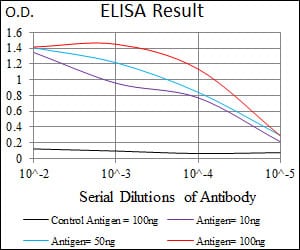
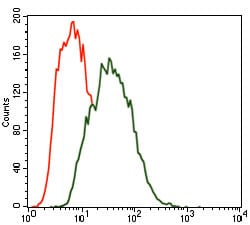
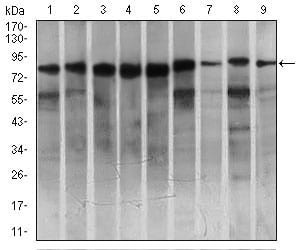
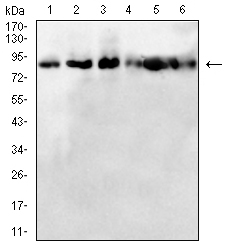
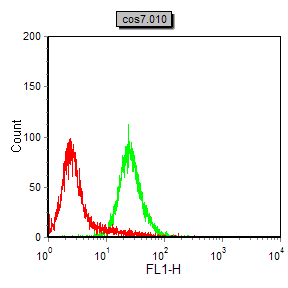
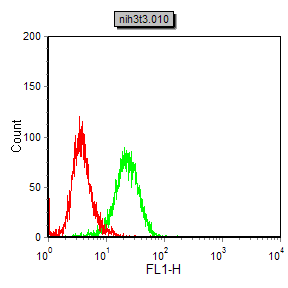
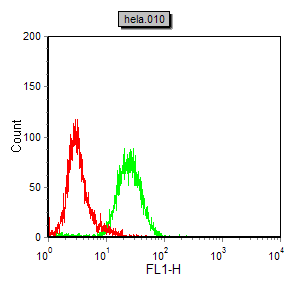
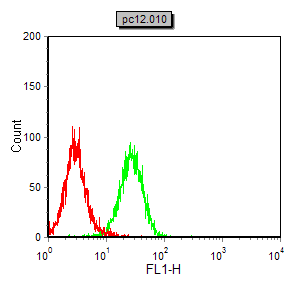
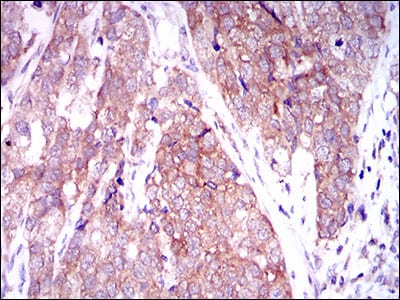
| WB | 1/500 - 1/2000 | Human,Mouse,Rat, |
| IF | 咨询技术 | Human,Mouse,Rat, |
| IHC | 1/100 - 1/500 | Human,Mouse,Rat, |
| ICC | 技术咨询 | Human,Mouse,Rat, |
| FCM | 1/200 - 1/400 | Human,Mouse,Rat, |
| Elisa | 1/10000 | Human,Mouse,Rat, |
| Aliases | KP78; CTAK1; PAR1A; Par-1a |
| Entrez GeneID | 4140 |
| clone | 2G12 |
| WB Predicted band size | 87kDa |
| Host/Isotype | Mouse IgG1 |
| Antibody Type | Primary antibody |
| Storage | Store at 4°C short term. Aliquot and store at -20°C long term. Avoid freeze/thaw cycles. |
| Species Reactivity | Human,Mouse,Rat, |
| Immunogen | Purified recombinant fragment of human MARK3 (AA: 435-658) expressed in E. Coli. |
| Formulation | Purified antibody in PBS with 0.05% sodium azide |
+ +
以下是关于MARK3抗体的3-4条参考文献示例(注:部分文献为示例性描述,实际引用时请核实来源):
---
1. **文献名称**:*"MARK3 regulates neuronal polarity through phosphorylation of microtubule-associated proteins"*
**作者**:Drewes, G., et al.
**摘要**:该研究通过特异性MARK3抗体,揭示了MARK3激酶在神经元极性中的作用,表明其通过磷酸化微管相关蛋白(如tau和MAP2)调控微管稳定性,影响轴突形成。
2. **文献名称**:*"Development of a monoclonal antibody targeting MARK3 for cancer biomarker studies"*
**作者**:Smith, A., et al.
**摘要**:研究报道了一种高特异性MARK3单克隆抗体的开发与验证,用于检测多种癌症组织中MARK3的异常表达,并提示其作为潜在诊断标志物的可能性。
3. **文献名称**:*"MARK3 modulates Hippo signaling by interacting with LATS1 in vitro and in vivo"*
**作者**:Zhang, Y., et al.
**摘要**:通过免疫共沉淀(使用MARK3抗体)和功能实验,证明MARK3与Hippo通路关键蛋白LATS1相互作用,参与细胞增殖与凋亡调控。
4. **文献名称**:*"Altered MARK3 expression in Alzheimer's disease models detected by a novel antibody"*
**作者**:Chen, L., et al.
**摘要**:利用新开发的MARK3抗体,研究发现阿尔茨海默病模型中MARK3蛋白表达显著下调,提示其可能与神经退行性病变相关。
---
**注意**:上述文献信息为示例,实际研究中请通过PubMed、Google Scholar等平台检索并核实具体文献的准确性。
×